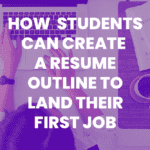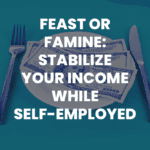Table of Contents
There was a time when resume gaps were considered a permanent black mark.
Employers assumed the only reason someone would be unemployed was because they “weren’t good enough” to get a job.
Fortunately, this outdated thinking isn’t as common anymore. Nowadays, employers are less surprised by gaps in a resume, because there are lots of legitimate reasons why people take a break from a work.
In fact, in today’s job market, you might be able to use the gap in your resume to your advantage. It all comes down to how you cover that period on your resume and how you talk about it in your interview.
This article will show you how to take that gap and use it to land your next job, using sample resumes with gaps in employment to inspire you.
Should you hide a gap on your resume?
Most of this article talks about ways to leverage resume gaps to make yourself more appealing to employers.
But remember that your resume is a marketing tool, not an autobiography. You’re under no obligation to list every job or activity you’ve ever undertaken. This means that there may be no need to list gaps on your resume at all.
When listing work experience on your resume, focus on jobs that are most relevant to the position you’re applying for. This approach naturally allows for some gaps to remain unnoticed, especially if you’re strategic about how you tailor your resume.
For example, on my resume, I only list three jobs (even though I’ve had more than ten jobs in my life). I have multiple versions of my resume, with different jobs highlighted depending on the skills I want to showcase. This makes any gaps impossible to notice, because hiring managers know I’m listing jobs based on relevancy, not chronology.
If you haven’t had many jobs, or you prefer a chronological format, consider listing years of employment rather than months. This method can make resume gaps less apparent and keeps the focus on your professional development.
These tactics can help you be discreet about gaps on your resume, but you may still need to provide explanations during your interviews. Make sure that you know exactly what’s listed on the resume you’ve handed in, so you’re prepared to answer any questions that come your way.
And for more resume tips, check out these resources:
Using gaps in your resume to your advantage
Before we get into specifics, I want to make a few overarching points.
First and foremost:
You are the narrator of your story.
As long as you stick to the facts, you can tell your story any way you choose, and highlight the elements of your history that will satisfy a potential employer.
No matter what the reason was for the gap in your resume, the key is to highlight the positive and relevant elements that relate to the job you’re applying to.
At the same time, you can downplay any elements of your story that you’d prefer not to disclose, or the details that you think might unfairly dissuade an employer from considering you.
Note that I am not advocating you lie or omit important truths from your resume. Rather, I am encouraging you to do what everyone does with their resume, gap or not: Tailor it to reflect the best version of yourself.
Finally, remember that consistency is key when it comes to explaining a gap in your resume. What is reflected in your application must be reflected during the interview process.
Now that you’ve got an idea of how to frame your story, here are 5 of the most common reasons for gaps on a resume, with examples of how to approach each scenario when applying for jobs.
1. Taking a gap year to see the world and enrich your life

A “gap year” is common practice in many countries, and thankfully becoming a more regular occurrence here in the U.S.
High school or college grads might take a year off when leaving home for the first time, before they continue schooling or enter the workforce.
Often, gap-year takers will use the time to travel internationally, though that’s not a requirement of a “gap year.” People can spend a gap year volunteering, studying, working, practicing a new skill, or a combination of these things.
If you’ve taken a gap year, consider what you did to fill your time, and what new lessons you learned along the way.
For example, let’s say the highlight of your year off was a road trip you took with a group of friends. Even if it was a short or modest trip just for fun, you still probably picked up some important skills:
- Driving experience
- Navigational abilities
- Teamwork and collaboration
- Travel planning
- New culinary experiences
Now let’s imagine that you have a few months left in your gap year, and you know job applications are on the horizon. So, you take some action to fill up your last few months with some enriching (and impressive) activities. You might:
- Volunteer as a tutor
- Write a couple of articles and publish them on Medium/Slack
- Take a short photography class
- Start a travel review TikTok channel
- Learn how to bake bread
Between the experiences on your road trip, and the other fun activities you use to fill your time, you can easily turn your gap year into an engaging profile of an active, driven, and creative dream employee.
By the way, if you like the idea of traveling and working at the same time, may I recommend you check out my digital nomad survival guide? 😉
2. Taking time to learn a trade

The idea that everyone follows the same route from high school to college to full-time work is outdated.
I’ve written an entire article on the many alternatives to college, from learning trades to taking on an externship.
If the unique route you’ve taken is relevant to the jobs you’re applying for, it should be easy to use your gap in work experience to beef up your resume.
For example, if you’re applying for jobs in radio and podcasting, and you took a year off to intern at your local radio station, potential employers will overlook the fact that you weren’t technically “working” during that time. You can more or less list that experience as a job on your resume, even if you weren’t paid.
Even if the alternative path you took isn’t relevant to the jobs you’re now applying for, you can still use the experiences and soft skills you picked up to make your resume look more impressive.
When it comes time to weave this experience into your resume or discuss it in an interview, focus on the specific skills you acquired and how they apply to the job you’re seeking. Talk about the discipline it took to pursue a non-traditional path, the hands-on experience you gained, and how it’s shaped your work ethic and problem-solving abilities.
Share examples of how your trade or vocational training has prepared you for real-world challenges. Think of a moment when you needed to use creative thinking or your gut instinct to solve a problem—those are abilities you need in any job.
3. Following entrepreneurial or freelance pursuits

Maybe you took a break to try your hand at running your own business. Perhaps you wanted to freelance for a few years, so you could raise a family or travel the world.
Now, you’re applying for jobs, either because you’re leaving your business behind or because you’re seeking a second source of income. Either way, you want to highlight the incredible things you did to build a business, and develop a compelling story around why you’re making a career shift.
Working for yourself, no matter what you do to earn income, demands a number of skills that many employers will find appealing. Initiative, drive, organization, planning, sales, marketing… the list goes on and on.
Once again, you want to tailor your resume to highlight the aspects of your self-employment that will make you an excellent asset as an employee.
In the interview, you can likely draw from your experience running your own business when answering interview questions like, “What’s a major challenge you had to overcome?” or “What’s an example of work you’re proud of?”
If the interviewer asks why you have decided to change your career, use this as an opportunity to explain why you’re looking forward to working for their company. For example…
Instead of saying, “I wasn’t making enough money, so I had to shut down my business,” try saying, “I learned a lot as I was running my business, but I reached a point where I needed more experience I couldn’t get working by myself.”
Instead of saying, “I kept getting distracted and putting off work,” try something like, “I found working by myself every day to be challenging. I’m looking forward to having a team to collaborate with, and who can keep me accountable.”
👆 All of these statements are true, but with the right language and tone, you send an entirely different, more positive message.
👇 And for more freelance or entrepreneurial tips, check out these resources:
4. Taking personal time to care for yourself or others

Sometimes, life demands that we take a break from work.
No one on this earth is exempt from unexpected circumstances that can bring work to a screeching halt. In my own life, I have gaps on my resume caused by heartbreak, burnout, extended illness, grief, and physical injury.
Explaining personal circumstances on a resume or during an interview is not easy.
First, remember that you are not obligated to provide more details on your circumstances than you are comfortable sharing. Use blanket phrases like “family emergency” or “health issue” to explain these absences; employers shouldn’t ask for more specific details beyond that during the interview stage.
If an employer does pry for information, or acts put off that you won’t disclose your personal circumstances, that is not an employer you want to work with. If they disrespect your needs and privacy during the interview process, they’ll do the same while you’re under their employ.
You don’t have to turn these kinds of challenges into fodder for your resume. But if find it productive, there’s no reason you can’t draw lines between your personal experience and your job aptitude.
We pick up skills and experiences in our personal lives that often relate to the job. Challenges teach us resiliency and how to manage stress. Navigating relationships in your personal life can help you get along with colleagues more effectively. If you feel comfortable with it, sharing these things on your resume or interview could serve you well.
5. When the economy causes a gap in your resume

What happens when you have a gap in your resume because you just can’t find a job?
You’re applying for jobs and working with recruiters, but nothing is landing. And the longer you go on looking for jobs, the wider the gap on your resume gets.
There’s no doubt this is a stressful situation, but a period of unemployment does not have to hold you back from getting your next job.
First, think about what you did with your time while you were unemployed. Aside from applying for jobs, did you work on any creative projects? Did you have any new experiences? Did you pick up any new skills? Even if you didn’t earn any income from the items on your list, they may have a place on your resume.
Remember that looking for jobs is a two-way street. You don’t have to dwell on your inability to find a job; you can flip the script, and use it to show how energized you are by the opportunity to work for this employer.
For example, you might say, “I’ve been looking for a company that would allow me to use both my creative skills and my technical background at the same time; that’s why I applied to this role as soon as I saw the opportunity.”
Having a gap on your resume isn’t a bad thing. When you take control of your personal narrative, you can show hiring managers that your time away gave you skills that enhanced your value as an employee.













